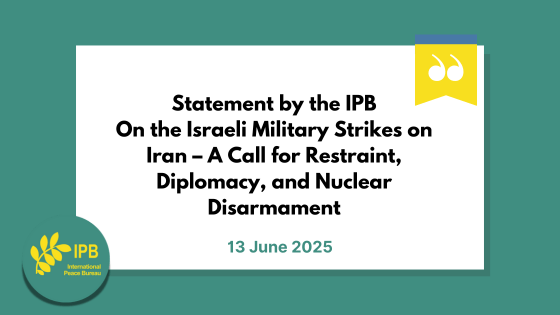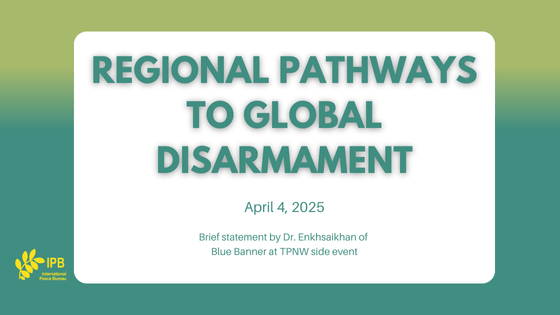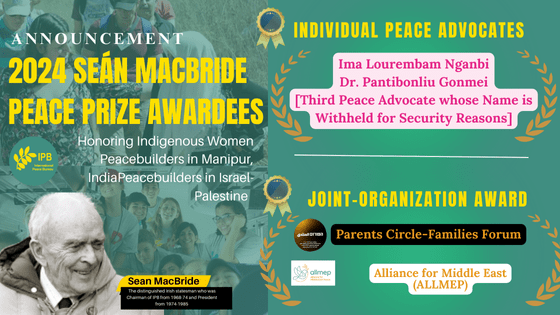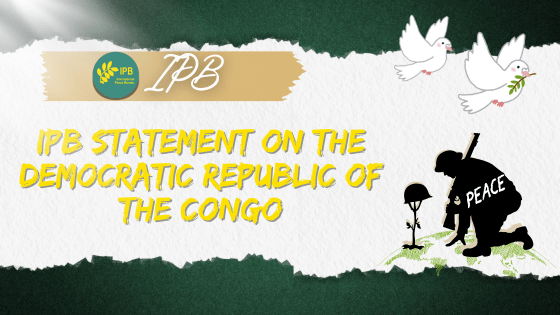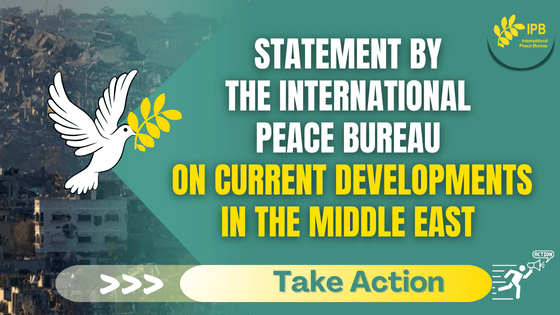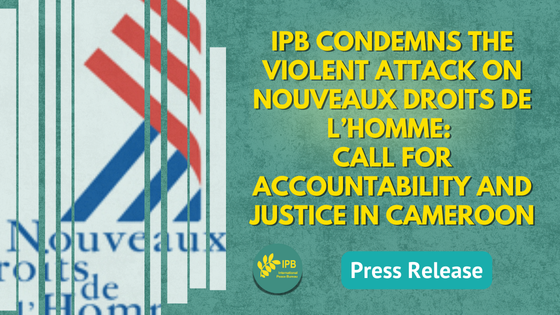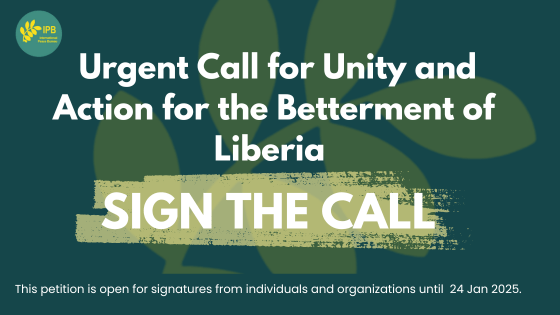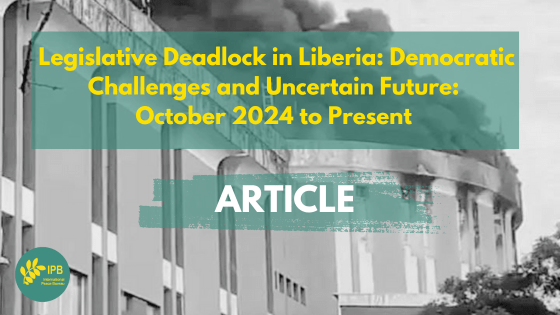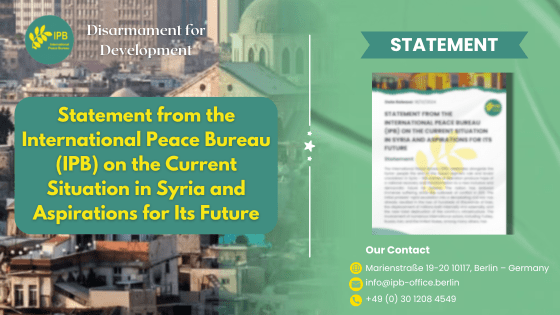The Middle East faces profound challenges threatening regional stability and international peace. Prolonged conflicts, political upheavals, and humanitarian crises have underscored global and regional stakeholders’ urgent need for collective action. Amidst these challenges, the resilience and perseverance of the region’s people remain a testament to hope and the critical importance of working together toward sustainable peace.
This statement highlights key regional developments and the International Peace Bureau’s (IPB) urgent call for action to address these pressing issues.
Ceasefire Agreement Between Hamas and Israel
A ceasefire agreement has been reached between Hamas and Israel following 15 months of relentless violence in Gaza. This period has led to devastating human losses—over 45,000 deaths and 150,000 injuries, the majority of which have affected women, children, and the elderly. More than 1.5 million civilians have been displaced, and Gaza’s infrastructure has suffered catastrophic damage, with 90% of medical facilities rendered inoperative. Acute food, water, medical supplies, and electricity shortages have left the humanitarian crisis at a breaking point.
The ceasefire includes the phased release of hostages, starting with women and children, alongside ongoing negotiations for the release of all captives. It also outlines the gradual withdrawal of Israeli forces with measures to ensure border security, the safe return of displaced civilians to northern Gaza with safeguards against weaponization, and a significant increase in humanitarian aid to address Gaza’s urgent needs.
IPB commends the ceasefire as a step forward and calls on all parties to adhere to its terms. The safety and well-being of affected communities must remain a priority. Furthermore, the international community must ensure unimpeded delivery of humanitarian aid and provide robust support to the United Nations Relief and Works Agency (UNRWA), which is vital in supporting Palestinian refugees.
Sustainable peace also requires opening the labor market to Palestinian workers and addressing the economic devastation caused by years of conflict. Reconstruction must follow the principles outlined in ILO Recommendation 205, focusing on decent work, quality public services, and collaboration with local stakeholders.
The IPB urges all nations to engage in constructive dialogue, uphold international law, and recommit to a two-state solution as outlined in United Nations Security Council Resolutions 242 and 338. Accountability for war crimes and acts of genocide must also remain a cornerstone of justice.
Developments in the West Bank
The situation in the West Bank has deteriorated despite the ceasefire, with an alarming increase in violence and settler attacks on Palestinian communities. The expansion of settlements continues to violate international law, exacerbating tensions and further displacing vulnerable populations.
IPB strongly condemns these actions and calls for the immediate cessation of settlement activities per United Nations resolutions. The rollback of sanctions that previously constrained settlement expansion has only emboldened illegal activities and deepened divisions.
The international community must reaffirm its commitment to a two-state solution and actively pursue de-escalation measures to protect civilians and restore hope for peace.
Evolving Situation in Syria
The ongoing violence and instability in Syria remain deeply concerning. Targeted attacks against civilians, particularly minority communities, have resulted in widespread fear and suffering, with over 150 deaths reported in a single month.
International sanctions on Syria have further crippled the nation’s economy, hindering essential services and exacerbating poverty. While sanctions aim to address security concerns, they must not disproportionately harm vulnerable populations. A balanced approach is vital—one that supports humanitarian efforts and economic recovery while addressing accountability and governance challenges.
The IPB calls on Syrian authorities to honor their international commitments under United Nations Security Council Resolution 2254, which provides a framework for democratic governance and free elections. Rebuilding efforts must prioritize human rights, inclusivity, and reconciliation to lay the groundwork for lasting peace.
Call to Action
The International Peace Bureau calls on all stakeholders to act decisively:
- Uphold the Hamas-Israel ceasefire, ensure civilian protection, and commit to peaceful conflict resolution.
- Support justice, accountability, and reconciliation efforts, including bolstering UNRWA’s mission and funding.
- Enforce international law and advocate for a two-state solution to address the root causes of violence in the West Bank.
- Help rebuild Syria’s economy and governance while ensuring that sanctions do not harm the most vulnerable.
Wars and violence yield nothing but devastation. The IPB reaffirms its dedication to fostering dialogue, reconciliation, and peace. Sustainable solutions require mutual understanding, open discussions, and collaborative efforts. Let this moment serve as an opportunity to unite and pursue justice, dignity, and peace for all.

